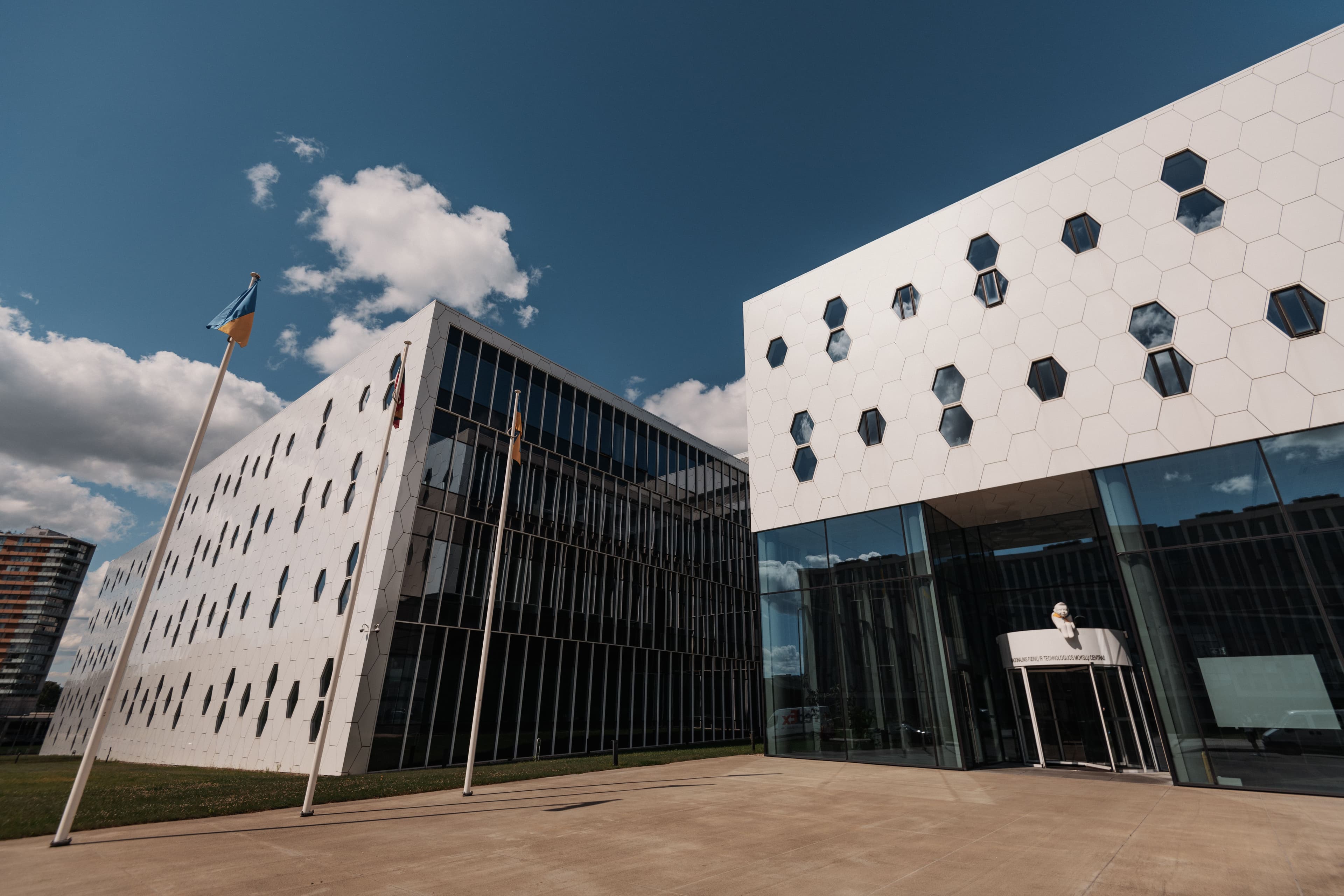
Chemical Physics
The programme is structured to build on the latest theoretical and practical knowledge in an environment shaped by interdisciplinary studies in modern science and technology. You will become a highly skilled specialist, ready for professional research, and capable of creating and developing scientific and technological solutions in environmental science, materials research, biomedicine and other fields.
- Modern scientific laboratories
- Courses delivered by world-leading scientists
- Interdisciplinarity
- degree of Master of Physical Sciences
- Faculty of Physics
- 2
- Physical Sciences
- Physics
- 120.0
- Full-time
- English
Learn about the structure of the study programme.
- On this Master's programme, you will develop a combination of practical experimental skills and strong theoretical knowledge. Through interdisciplinary scientific experiments involving modern spectroscopic equipment and techniques, you will learn how to analyse and summarise results, as well as assess their practical relevance.
- This expertise will open doors for you in high-tech industries, business, environmental protection, public health and other fields.
Entry qualification
Undergraduate diploma (or higher)
N. B. for non-EU/EFTA applicants: The gap since your completed Bachelor degree should not exceed five years.
Completed university bachelor’s degree studies in physics or chemistry of the physical sciences study field group, materials technology and biotechnology field of the life sciences study field group or technological sciences study field group or other studies closely related to the aforementioned fields.
In the diploma supplement: No less than 60 per cent of the volume of course units taken shall be in the fields of physics, mathematics, engineering, materials technology, nanotechnologies; the cumulative grade point average of these course units shall be no less than 60 per cent of the maximum possible grade. All course units must be passed (positively assessed).
Additional points could be obtained for scientific publications and scientific conference presentations in the fields relevant for the study programme as proved by the bibliographic references.
The candidates who meet the above-listed criteria will be invited to a remote motivational interview. During the interview, the candidate’s determination to study in a science-based Master’s degree programme is assessed. If the interview is deemed unsatisfactory, the candidate will not be invited to study.
The entry qualification documents are accepted in the following languages: English / Lithuanian.
Often you can get a suitable transcript from your school. If this is not the case, you will need official translations along with verified copies of the original.
Translation is considered to be official when it is bound together with the certified true copy of the original document and is confirmed by the translator’s signature. Documents issued in English, Lithuanian must be certified true copies and do not require translation.
Language requirements
English
The following language certificates are accepted for study programmes taught in English: IELTS Academic 6.5+, TOEFL iBT 81+, Cambridge English Exam 176+, Pearson PTE Academic 59+, LanguageCert IESOL B2, Duolingo English Test 120+, Password Skills Plus 6.5+ or another language proficiency certificate equivalent to B2 CEFR (Common European Framework of Reference for Languages).
If your first language is English and/or if you have a university degree in English, you will be exempt from providing an English language test score.
Other requirements
A motivation letter must be added to your application.
Applicants from Bangladesh, Nepal and Pakistan must submit OMPT-D (Online Mathematics Placement Test) Certificate (minimum passing grade – 60%).
Territory requirements
Applications are NOT accepted from the following territories (based on citizenship): Russia.
The programme has reached its limit of applications from Russia.
1
2
3
4
5
6
7
- 6 500 EUR for non-EU students / 5 538 EUR for EU students
Tuition fee
Students who are citizens of the European Union, the European Economic Area countries and of other foreign countries, admitted to non-state-funded places in the first year of first-cycle and second-cycle studies through the University’s foreign student application system, must pay the annual tuition fee within 15 calendar days from the date of the offer to study.
After the student pays the tuition fee, he receives the final acceptance letter. Then our International Relations Office provides the necessary information related to obtaining a temporary residence permit in Lithuania and sends a mediation letter to the student by e-mail (for non-EU citizens).
Application fee
The application fee is €100 per application. Each applicant can choose up to three programmes within one application.
Online applications will only be processed once the application fee has been paid.
Please note that the application fee is non-refundable. Make sure you read the admission requirements and deadlines carefully before submitting your application, as the fee cannot be refunded if you are found to be ineligible or miss a deadline.
Scholarships for Master's





